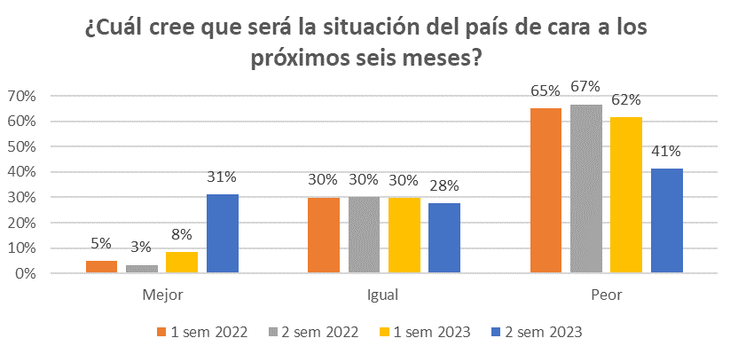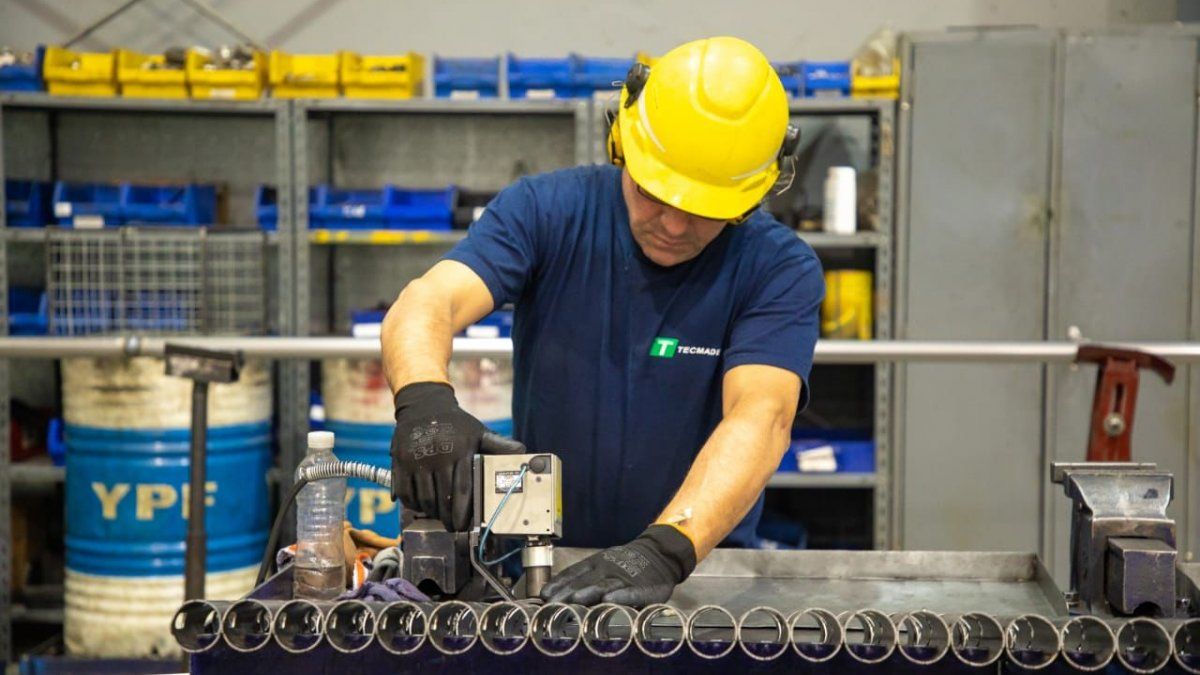Prevented from passing on the increase in costs to prices, Companies will be forced to adjust their staff to improve their competitiveness. Some January surveys carried out among small and medium-sized companies reveal a beginning of deterioration of their employment indicators.
According to a survey of IAE Business Schooll among 268 firms nationwide, 11% of SMEs companies plan to reduce staff in the next six months while 29% say “maybe” they will.
On the other hand, the proportion of companies that say they do not plan to reduce staff was 60%. In the first half of 2022, the proportion of companies that said they were not planning to reduce their staff was 76%. In the first half of last year it was 71%.
Regarding those that foresee layoffs, In the first section of 2022, it was only 6%as in the same period of 2023. That is, in a yearor almost doubled the number of SMEs that plan to reduce their staff in the next six months.
iae-unemployment-table.png
The behavior has an explanation, and it is that Companies are hitting falling demand to which cost increases cannot be transferred to prices. In order to compensate they have to improve competitiveness. If other costs, such as taxes, do not decrease, the correction is on the employee workforce.
Marina dal Poggetto, director of Eco Go, points out that “after the increases following the exchange rate shock in December, sales plummeted and Faced with that, there is like a wait and see for companies.” “The costs are starting to hit,” she explained.
Dal Poggetto maintains that the recession that is being generated “There is going to be a sharp jump” in unemployment. “In the case of companies, after the pandemic, no one looked at the demand curve because what was missing was supply,” explained the economist, who highlighted that “With a limited supply, the company sold everything it had at the price it wanted, but that was over,”
“There comes a time when your fixed costs start to make noise,” Dal Poggetto explained.
Thus, the director of Eco Go anticipated that the correction, When companies cannot raise prices it is an increase in productivity. “In the short term, an increase in productivity is resolved with an increase in unemployment”, he anticipated.
The view of businessmen
The teacher Guillermo Fraile, academic director of the IAE’s Small and Medium Enterprise Management programs pointed out that “the SME sector is aware that The difficulties to be faced will be, in the coming months, similar to those of last semester, but it has a “expectation of improvement in the environment”
“Since the beginning of 2022, when the survey began, “More than 60% of the SMEs surveyed say that they are doing better than in the previous semester, but that percentage has been decreasing with each survey”said Fraile, who said that “the worsening of the macroeconomic situation clearly impacts the management of these companies.”
“In this context, SME entrepreneurs should redefine the management of their companies, attract talent and make the necessary investments to reconvert into a market that could become more competitive. However, attracting talent is one of the main bottlenecks that hinders the growth of SMEs,” warns Fraile.
“The difficulty in incorporating personnel and thus improving productivity remains at very high levels. The reduced supply of suitable talent may increase costs when the recovery begins. A structural and long-term solution is required,” she added.
The economist recognizes that ““The expected improvements in results will not yet translate into more staff hiring.” “The level of expectations for hiring personnel remains stable in more than half of the companies. Simultaneously, the majority are not thinking about reducing their workforce,” he explained.
Despite everything, expectations improve
The IAE report indicates that despite the recessionary context, for 59% of SMEs, the country’s situation in the first semester will not worsen.
“In particular, 31% of the businessmen consulted predict that the situation will improve. These percentages reflect greater optimism in the SME business community compared to those obtained in a similar survey carried out in June, when only 38% of those surveyed expected an equal or better scenario,” says the study.
iae-expectations-pyme.png

Source: Ambito




